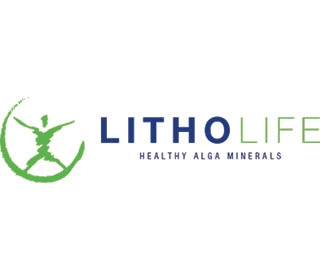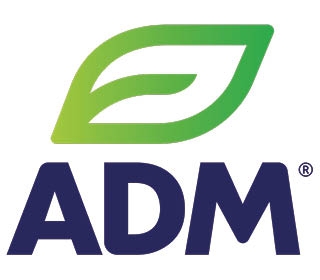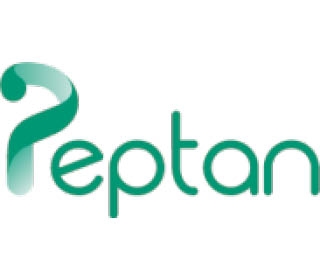DuPont discusses “seismic shifts” in the protein revolution
The plant-based revolution is spreading quickly, yet research points to a lack in both funding and training for growers and processors of alternative proteins around the world. At this week’s 50th World Economic Forum Annual Meeting held in Davos, Switzerland, DuPont led a session on “The Protein Revolution from Fork to Farm” at a World Business Council for Sustainable Development (WBCSD) event. Speaks to presenter Amy Byrick, DuPont Global Leader for Food & Beverage, about the “seismic shifts” occurring in the plant-based protein sphere.
“It is pivotal that the food industry understands its sustainability challenges and is able to quantify them. I would urge it to apply life cycle thinking. At DuPont, we have experience using life cycle assessment as a tool in integrating sustainability across all key business activities, notably sourcing responsibly, optimizing our operations and driving sustainable innovations. Right now, we work to understand and rank our products sustainability impacts across their life cycle. This gives a unique perspective of our company’s link to the food system challenges,” says Byrick.
Research from WBCSD outlines that across industry, many farmers lack access to information and training, as well as to microloans and credits. This creates difficulties in adapting farming practices to achieve sustainable plant protein production. In other cases, regulatory and economic policies do not always support healthy and sustainable proteins. Some organizations have introduced sustainable protein public procurement policies, but progress is still slow overall and clear guidance is not yet available.
The inconsistency of plant-based product definitions and labeling regulations across markets further hinders the visibility and placement of these goods. The need to fortify many plant protein-based products can also put these products at a disadvantage when considering labeling restrictions – for example, in the fortification of certified organic plant protein products.
“We are witnessing a seismic shift in applying targets based on science. The protein revolution is happening now. Public opinion and consumers demand more plant-based foods. Ensuring a sustainable food industry, in its widest sense – ethical, socially with sustainable sourcing and production – is our responsibility,” stresses Byrick.
WBCSD emphasizes that precision agriculture, censors, plant protein isolates, processing technologies and product fortification are all examples of technologies that can help promote plant protein production and consumption at scale – if properly introduced to farmers and food value chain employees.
Furthermore, innovative business models, such as those focusing on regenerative crop rotations that favor agrobiodiversity, can help promote low-tech solutions to scaling up plant protein production and consumption.
Impact of modern farming
The impact of contemporary livestock rearing practices on planetary health is pronounced. The meat sector is a major emitter of greenhouse gases (GHG), generating 7.1 gigatonnes of CO2 emissions and representing 14.5 percent of all human-induced emissions, according to WBCSD data. Beef and milk production are responsible for 60 percent of the livestock sector’s emissions.
Meanwhile, food production has a major impact on global land use as it covers 32 percent of arable land globally. Of this area, the livestock sector uses 62 percent. This includes land to grow feedstocks for animals as well as native grasslands for animals to graze. Furthermore, beef production is also water intensive, having a water footprint six times larger than that of pulses. The negative impact of livestock production on land use varies considerably according to regions and land management practices, notes WBCSD.
“Right now DuPont is pioneering innovation in plant-based meat, dairy analogues and beverages – naturally in partnership with our customers, and through those partnerships we are seeing major advancements in plant-based offerings, in terms of taste, texture and nutritional value. We know it must be food with great taste, the right texture and eating experience for this to be viable,” says Byrick.
Alternative protein is a key focus for Davos 2020. Actions include a “Future Food Wednesday” event, with Nestlé providing meat alternatives on the day. The “The Plant-Based Revolution” is pegged by Innova Market Research as the second most significant trend expected to influence NPD this year, fueled by growing consumer awareness of the impact of meat consumption on both personal and planetary health.
Meat industry proponents have argued that removing livestock would not lead to a substantial difference in the carbon footprint of our meals.Conventional proteins hit back
At a time when sustainable proteins are enjoying buoyancy on the market, farm-raised meat and other animal products have come under scrutiny from proponents of emergent plant-based agritech. At Davos 2020 this week, Tyson Foods launched the Coalition for Global Protein, a multi-stakeholder initiative to advance the future of alternative protein sources.
The plant-based revolution is not entirely without backlash. Several European livestock organizations have banded together under the European Livestock Voice in a bid to “restore balance and factual information” about the meat sector’s impact on health, environment and economy. Proponents of the counter-movement firmly contend that from a climate change perspective, the carbon footprint of our meals would not see a substantial difference with the removal of livestock.
Earlier this month, the European Whey Processors Association (EWPA) launched a new platform dubbed “wheyforliving,” its first B2C digital communication website aimed at “establishing a European whey protein voice” on social media, in line with EWPA’s aim to convey a deeper understanding of whey and related topics for European consumers. Amid a diversifying protein market, the association is particularly outspoken in its mission to steer the conversation surrounding increasingly popular plant-proteins.


























